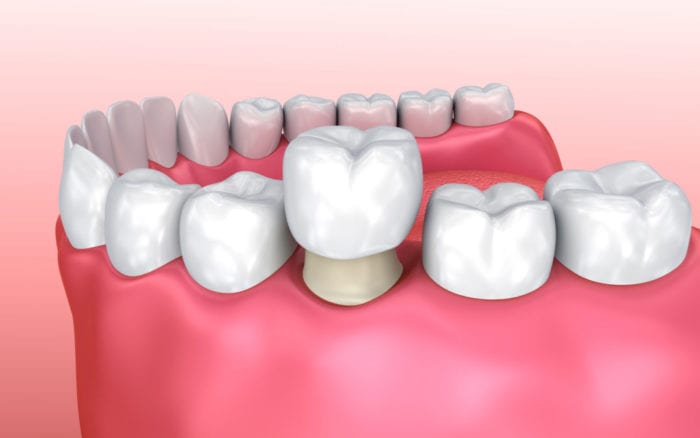A dental crown can help strengthen a tooth with a large filling when there isn’t enough tooth remaining to hold the filling. Crowns can also attach dental bridges, protect a weak tooth from breaking, or restore a tooth already broken. A crown is an excellent way to cover teeth that are discolored or poorly shaped. We provide dental crowns as restorative dentistry treatments for patients in Garland, TX, whether they need to restore missing teeth or address tooth damage.

Dental Crown Treatment in Garland, TX
To begin dental crown treatment, we will first numb your treated tooth. Then, we will shape the tooth to prepare it for treatment. Tooth preparation ensures the crown fits properly.
After preparation, we will take dental impressions of your tooth. We send these impressions to a dental lab, where technicians create the crown to our specifications. Our office will also color-match your teeth so the crown blends in with your smile. While the lab creates your crown, we will place a temporary one.
After several weeks, your crown will be complete. You will return to our office, where we will remove your temporary crown. Then, we will check the crown’s shape, size, and shade before permanently cementing it on your tooth.
Get a Crown Today
Call Cornerstone Family Dentistry for dental crown treatment in Garland, TX today at 972-848-7749. You can also schedule a dental appointment online.
